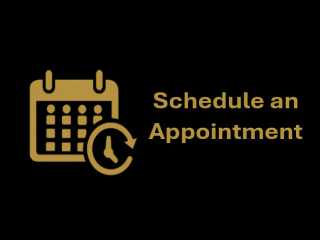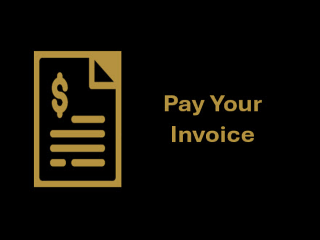

WAVE LISTENS LIVE! FAMILY LAW FRIDAYS -
SEPTEMBER 30, 2022
John Schmidt - Oct. 21, 2022
JOHN RAMSEY: It’s a sensitive subject, but there may be a time when you need to talk about the possibility of divorce, unfortunately. With me now is a lawyer who is very compassionate and has been there. He is John Schmidt. John, welcome back to the show.
JOHN SCHMIDT: Thanks, John.
JOHN RAMSEY: I hope you don’t mind I said you’ve been there.
JOHN SCHMIDT: No. I have, twice.
JOHN RAMSEY: You’ve been open — you’ve been open about that on the show, so I knew it was okay.
JOHN SCHMIDT: Yeah.
JOHN RAMSEY: I’ve been there twice.
JOHN SCHMIDT: Yeah. Good lawyer, maybe not the best husband, but I — you know, you learn.
JOHN RAMSEY: Fantastic lawyer. Becau — I — I do think there’s something to be said. I’ve been through the experience. I know it’s hard. You don’t make it simplistic. You — you talk about all the — the options. So I’m — I’m going to run a few scenarios by you. First of all, I think when you see someone like you, John, you’ve made the decision to divorce, okay? It’s not a payback. It’s not an emotional decision, or it shouldn’t be, and it’s not going to right a wrong. It’s a —
JOHN SCHMIDT: That’s right.
JOHN RAMSEY: It’s a definite decision, right?
JOHN SCHMIDT: It is. It is. You know, a lot of people do things for different reasons, and if you want to pay for the fight, you can. You can. But at the end of the day, most people have limited resources, and — and you’re going to split what you have. So the more you pay the lawyers, the less you have to split. So, you know, why — why not — why not keep more of your stuff, and — and —
JOHN RAMSEY: You encourage that.
JOHN SCHMIDT: — I’ll figure out a different way to put my kids through college.
JOHN RAMSEY: That’s right. You — you encourage that. If we can do it —
JOHN SCHMIDT: I do.
JOHN RAMSEY: — for less money, I want you to do that. And sometimes it is amicable, sometimes not. We touched upon this, but elaborate a little bit. Do you have people come in, clients who come in sometimes, and it is — you can tell it’s emotional right away —
JOHN SCHMIDT: Yeah.
JOHN RAMSEY: — that they haven’t clearly sat down and thought about it. Talk about that, the importance of how that — how big a decision it is.
JOHN SCHMIDT: Well, it’s huge, right? And so the — the trauma is pretty significant, and, you know, we’ve talked about this. I — I went to what’s called Onsite Workshops outside Nashville, and they’re very — you know, they’re next-level therapists, but it — it — it does have an emotional component, and — and a lot of times, at least, people feel like they’re walking on quicksand because in a marriage, you know, your spouse does part of the work, you do part of the work, and you come to depend on them, and — and that — that — it goes away, and you’re left in a whole new situation, kids are in a whole new situation, and so it’s — it’s a lot of trauma for everybody in a lot of cases. Sometimes, you know, it — we navigate it in a very healthy way, and I try to help clients do that. So preserve as much of their assets as possible, fight aggressively to make sure that they get exactly what they’re entitled to, and — and make sure we come out the other side in as healthy a way as possible.
JOHN RAMSEY: Yeah. And — and the decision should be based on self-awareness, not some emotional thing that’s not going to last. And it shouldn’t be a threat. If you say, “We’re going to divorce,” it’s not a threat. It’s — it’s happening. That’s a big word, right?
JOHN SCHMIDT: Yeah. I think once you put that horse out of the barn, it’s hard to put — put it back in. But, you know, by the time people come see me, they’ve — they’ve pretty much made up their mind. I mean, sometimes we get people who come in, and they’re just checking out their options, but most of the time, they’ve made up their mind, and — and we try to, like I said, get through it with as much of their assets intact as possible without running up huge legal bills. I — I’m not cheap by any stretch of the imagination, but — but I — I think I’m worth it because I — at the end of the day, my clients, you know, are — their assets are preserved as much as possible, and — and I think they get out — come out the other side of this healthy as possible.
JOHN RAMSEY: Yeah. As I — gotten — we’ve become friends. I do think, yes, that you are the right answer as far as — I don’t even — if it’s — if it’s custody battle, adoption, whatever the family issue may be, you are the right guy because you do have compassion, and you are looking out for the best for your clients. I — I’ve just gathered that through conversation. So let’s talk about mediation.
JOHN SCHMIDT: Sure.
JOHN RAMSEY: Because I’ve — I’ve never been divorced. What is — how — when do you need mediation? Is that required? I don’t know how that works.
JOHN SCHMIDT: Yeah. It’s a good question. Kentucky actually has a policy that supports mediation. Some counties will order it. Jefferson County’s very good about that. Most of the judges in Jefferson County will say, before we go to set a trial date, we’re going to send you to mediation because an overwhelming percentage settle in a mediation, and what — what happens is you go back to court far less frequently than if you go to trial. So if you reach an agreement that you have personally made, you’re less likely to think it’s unfair and to want to fight over the details than if you let a judge who doesn’t know you make the decision. And — and I’ve known some judges to say, you know, it’s real easy to divide cash, so I’m going to order everything sold, and we’ll just divide the cash.
JOHN RAMSEY: You’re going, whoa, whoa, you know. Yeah.
JOHN SCHMIDT: Right?
JOHN RAMSEY: Right.
JOHN SCHMIDT: I mean, Grandma’s stuff, you know, these memories that we have, whatever’s precious to you, we’re going to order all the furs sold, all the guns sold, all the cars sold, house is sold, property, everything sold, and we’ll just divide the cash. And it — it is a lot easier to divide that than it is to say, well, okay, I’ve got to balance who gets what.
JOHN RAMSEY: That’s hers, that’s his.
JOHN SCHMIDT: That’s right.
JOHN RAMSEY: That makes sense to me. Wow. Let’s talk a little bit about — okay. When — you said — I found this funny, but it’s a real scenario. You said sometimes people come in to you, and they go, “Oh, this is easy. It’s uncontested,” and you say, it — do both of you agree with that? Is that — is that how it works?
JOHN SCHMIDT: It — it is. It’s happened several times this week, and, you know — and —
JOHN RAMSEY: I’m sorry to laugh.
JOHN SCHMIDT: — you know —
JOHN RAMSEY: It’s not funny —
JOHN SCHMIDT: Well —
JOHN RAMSEY: — when people get divorced, but —
JOHN SCHMIDT: No.
JOHN RAMSEY: — but…
JOHN SCHMIDT: Well, we — we talked about it —
JOHN RAMSEY: Yeah.
JOHN SCHMIDT: — several times, the two of us, and — and it’s happened this week. And — and so it’s like, okay, have you and your spouse talked about everything, and are you in agreement, and the answer is no, but it — it shouldn’t be a fight because I know what I want. I know what I want.
JOHN RAMSEY: I know what I want.
JOHN SCHMIDT: Yeah. And — and while that’s — that’s nice, and — and that’s — I appreciate that, it’s — it’s not uncontested because the other person has to agree. And so another word for uncontested is agreed, so an — an agreed divorce. And so if both parties are in agreement, and everything’s together, then — then we can get it done. And, you know, we’ve – – we do many a week and —
JOHN RAMSEY: Very inexpensively.
JOHN SCHMIDT: Yeah. It’s — I charge 1,300 hours for it. I got to pay the court fees and everything else, and — and then I know how much time I have, and so I charge 1,300 for it. You know, if you’re going to divide your retirement accounts, and it’s not an IRA or a 401k, but it’s, like, you know, the Ford plan — pension plan or, you know, other retirement plans like that, a lot of times, we’ll need to do a QDRO. And there are three people in town that — that are really good at it. There’s Charlie Meers, Sabine Stovall, and Bonnie Baker. Those three attorneys focus on that. So we’ll refer that out. Deeds are extra. So a lot of times, if you own real estate, we have to do deeds and — and —
JOHN RAMSEY: How do you know where to file? I’m…
JOHN SCHMIDT: Well, circuit courts are courts of general jurisdiction, so you could file in any circuit court if it’s an agreed divorce. So it doesn’t have to be in Louisville. It doesn’t have to be in Shelbyville or Oldham County or, you know, wherever you live. It could be in any circuit court, and so — so I — I tend to file in the courts in which I practice all the time because the judges know my stuff, they know my pleadings, they know my work, and it — it just expedites things if they’re familiar with what you do and how you do it, and you’re familiar with how they do it and what they require. So — so that’s where you file. You file in circuit court.
JOHN RAMSEY: Whatever you need in terms of family law, the Law Offices of John Schmidt. I’m telling you, good man. Good man. Thank you. I appreciate.
JOHN SCHMIDT: You’re welcome, John. Good seeing you.
JOHN RAMSEY: I always enjoy the conversation. Tough topic, but nonetheless, if you need help with divorce, again, it is John Schmidt, the Law Offices of John Schmidt & Associates. All right. We’re going to take a little break here.
(END OF RECORDING)
CERTIFICATE OF REPORTER
COMMONWEALTH OF KENTUCKY AT LARGE
I do hereby certify that the said matter was reduced to type written form under my direction, and constitutes a true record of the recording as taken, all to the best of my skill and ability. I certify that I am not a relative or employee of either counsel, and that I am in no way interested financially, directly or indirectly, in this action.



